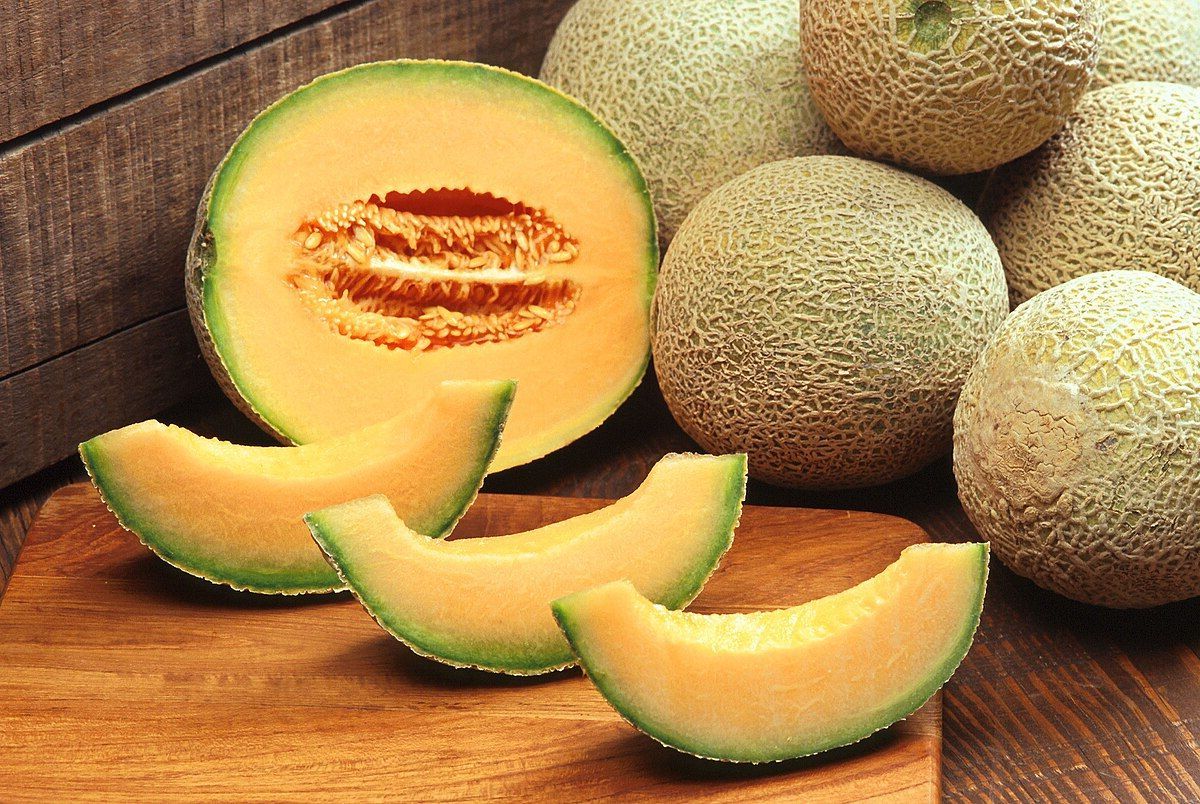
Melons are more than just a refreshing summer treat. These juicy fruits come in various shapes, sizes, and flavors, making them a favorite worldwide. But did you know that melons have a rich history and surprising health benefits? From ancient cultivation to modern-day superfood status, melons have a story worth telling. Whether you're a fan of watermelon, cantaloupe, or honeydew, there's always something new to learn about these delicious fruits. In this post, we'll explore 30 fascinating facts about melons that will make you appreciate them even more. Get ready to be amazed by the world of melons!
Key Takeaways:
- Melons, such as watermelon and cantaloupe, are not only delicious but also packed with vitamins, fiber, and antioxidants that can help keep your skin healthy and your immune system strong.
- Did you know that melons were first cultivated in Egypt around 2000 B.C. and that the largest watermelon ever recorded weighed a whopping 350.5 pounds? These juicy fruits have a rich history and some surprising fun facts!
Melons: A Juicy Delight
Melons are not just refreshing; they are packed with fascinating facts. From their historical roots to their nutritional benefits, melons have a lot to offer. Let's dive into some juicy details about these delicious fruits.
- Melons belong to the Cucurbitaceae family, which also includes cucumbers, pumpkins, and squash.
- The word "melon" comes from the Greek word "m?lopep?n," meaning "apple-shaped gourd."
- There are over 30 different types of melons, including watermelon, cantaloupe, and honeydew.
- Watermelons are 92% water, making them one of the most hydrating fruits.
- The largest watermelon ever recorded weighed 350.5 pounds.
- Melons were first cultivated in Egypt around 2000 B.C.
- Ancient Egyptians often placed melons in tombs as offerings to the gods.
- In Japan, square watermelons are grown for easier stacking and storage.
- Cantaloupes are named after the Italian village of Cantalupo, where they were first cultivated in Europe.
- Honeydew melons are known for their sweet, pale green flesh and smooth rind.
Nutritional Powerhouses
Melons are not just tasty; they are also incredibly nutritious. Packed with vitamins, minerals, and antioxidants, these fruits can boost your health in many ways.
- Melons are rich in vitamins A and C, which are essential for healthy skin and immune function.
- They contain antioxidants like beta-carotene, which can help protect against certain cancers.
- Watermelons are a good source of lycopene, a powerful antioxidant linked to heart health.
- Melons are low in calories, making them a great snack for weight management.
- They are high in fiber, which aids in digestion and helps maintain a healthy gut.
- The potassium in melons can help regulate blood pressure and support heart health.
- Melons have a high water content, which helps keep you hydrated, especially during hot weather.
- They contain folate, which is important for cell division and DNA synthesis.
- Melons are a good source of magnesium, which plays a role in over 300 enzymatic reactions in the body.
- Eating melons can help reduce inflammation due to their anti-inflammatory properties.
Fun and Unusual Facts
Melons have some quirky and surprising aspects that make them even more interesting. Here are some fun and unusual facts about these delightful fruits.
- In some cultures, melons are considered a symbol of fertility and abundance.
- The Japanese Yubari King melon is one of the most expensive fruits in the world, with a pair selling for over $45,000.
- Melon seeds were used as a form of currency in ancient China.
- The scent of cantaloupe is often used in perfumes and scented candles.
- Melons can be used in savory dishes, such as salads and salsas, as well as in sweet desserts.
- In Spain, a popular summer treat is "melon con jamón," which pairs sweet melon with salty ham.
- Melon rinds can be pickled and used as a tangy condiment.
- The flesh of some melons, like the Korean melon, is crisp and crunchy, unlike the soft flesh of most other melons.
- Melons can be grown in a variety of climates, from tropical to temperate regions.
- The world's largest melon festival is held annually in Chinchilla, Australia, featuring melon skiing, melon bungee, and melon tossing competitions.
The Sweet Truth About Melons
Melons aren't just tasty; they're packed with nutrients and history. From watermelons to cantaloupes, these fruits have been enjoyed for centuries. They offer hydration, vitamins, and a refreshing taste that's hard to beat. Whether you're munching on a slice at a summer picnic or adding them to a fruit salad, melons bring a burst of flavor and health benefits.
Remember, melons are more than just a sweet treat. They're a testament to nature's bounty and a reminder of the simple pleasures in life. Next time you bite into a juicy piece, think about the journey it took from the vine to your plate. Enjoy the sweetness, savor the freshness, and appreciate the rich history behind every bite. Melons truly are a gift from nature, offering both delight and nourishment.
Frequently Asked Questions
Was this page helpful?
Our commitment to delivering trustworthy and engaging content is at the heart of what we do. Each fact on our site is contributed by real users like you, bringing a wealth of diverse insights and information. To ensure the highest standards of accuracy and reliability, our dedicated editors meticulously review each submission. This process guarantees that the facts we share are not only fascinating but also credible. Trust in our commitment to quality and authenticity as you explore and learn with us.


